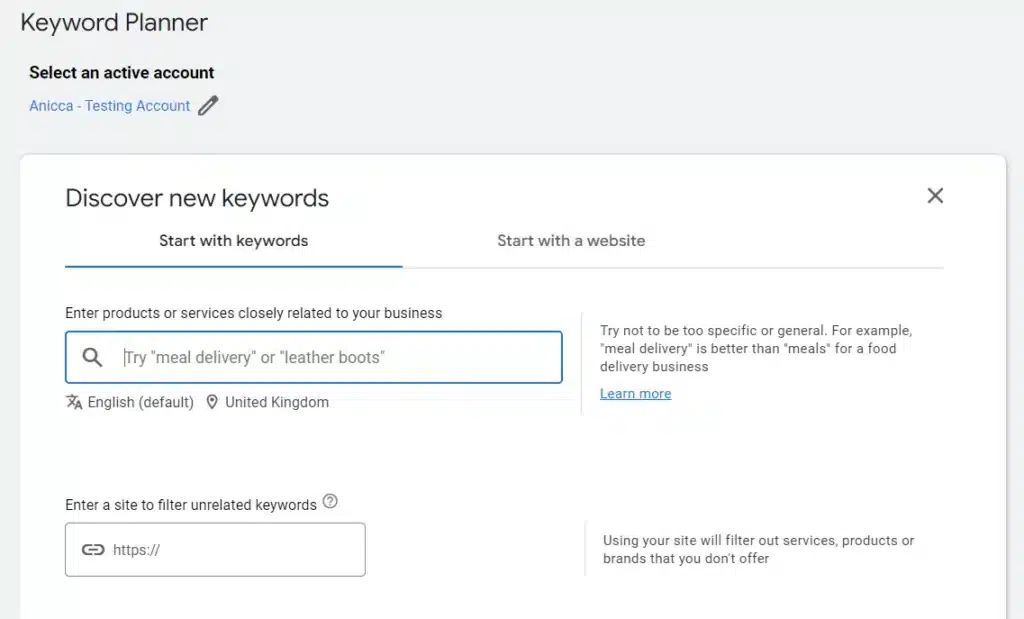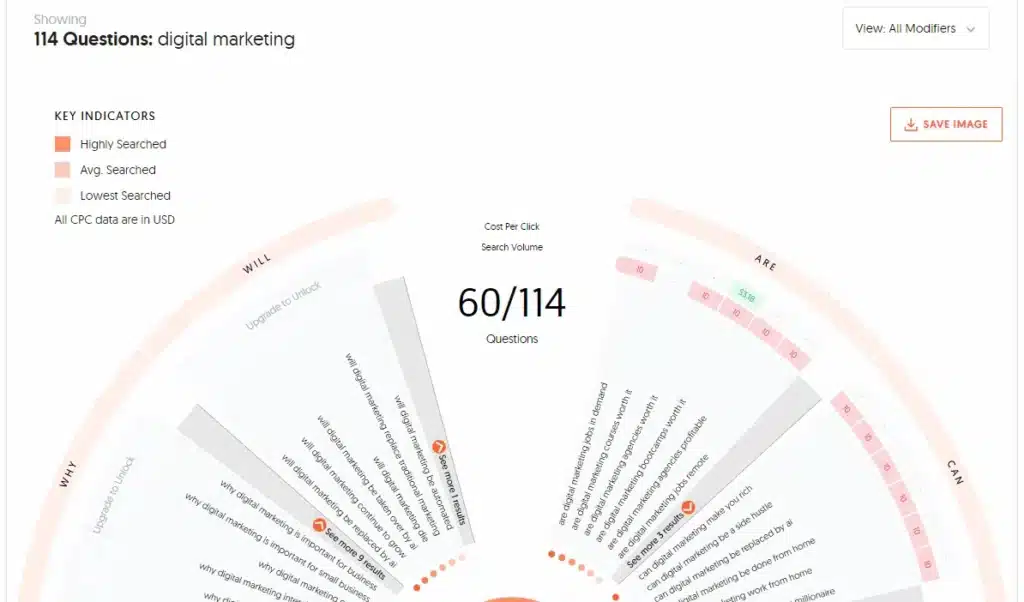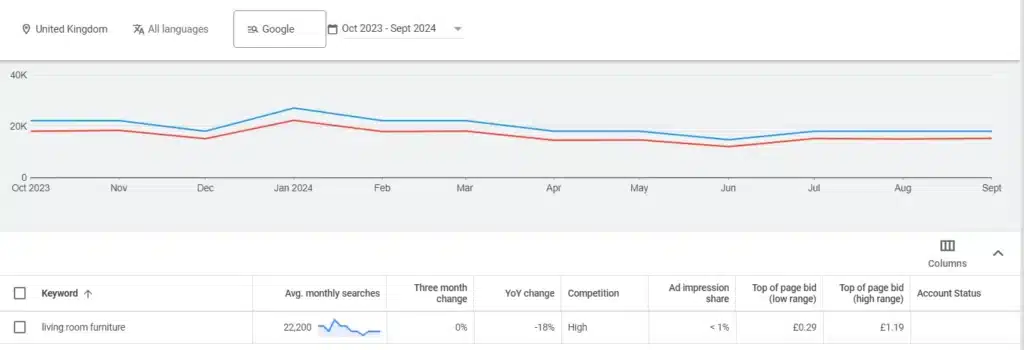Effective keyword research is essential to creating successful pay-per-click (PPC) campaigns. By identifying and refining the right keywords, advertisers can effectively reach their target audience, maximize relevance, and control costs.
This comprehensive guide provides everything you need to know about conducting keyword research for PPC campaigns, from understanding match types to utilizing research tools and optimizing your strategy for better ad performance.
What Is Keyword Research in PPC?
Keyword research entails compiling a list of terms that users type into search engines when looking for specific topics. It involves analyzing search volume and, depending on the tool, assessing the level of competition for each keyword.
As PPC has evolved, automation, broader match types, and campaign consolidation have reshaped how marketers approach keyword research. These changes demand a more strategic focus on user intent and keyword relevance.
Beyond search ads, keyword research also informs display and video campaigns. By targeting users searching for specific terms or engaging with related content, marketers can broaden their ad reach across multiple formats.
Types of Keywords
Search advertising platforms like Google Ads and Microsoft Ads categorize keywords into different match types, each determining how closely a keyword aligns with a user’s query. These match types influence when and how ads appear:
Positive Match Types
- Broad Match: Matches to related searches, even if the keyword is not explicitly in the query. Use cautiously alongside smart bidding to maximize relevance and control costs.
- Phrase Match: Matches searches that include the keyword’s meaning, often expanding to synonyms or variations. Suitable for seed keywords with 1–3 words.
- Exact Match: Matches queries with the same meaning or intent as the keyword. Works well for highly specific, longer-tail terms.
Negative Keywords
Negative keywords block ads from appearing for irrelevant searches, reducing wasted ad spend and improving efficiency.
Choosing the Right Keywords for PPC
Keyword research overlaps with SEO, offering opportunities for collaboration between teams to identify gaps and refine strategies. When selecting keywords, consider:
- Your product or service offering.
- Campaign objectives and goals.
- User intent and funnel stage.
- Competitor activity.
- Budget and associated costs.
- Target audience demographics.
- Organic search rankings.
Keyword Themes:
- Brand Terms: Keywords related to your brand (e.g., JD Sports).
- Competitor Terms: Keywords tied to competitors’ brands (e.g., Footasylum).
- Third-Party Brand Terms: Keywords for brands you sell (e.g., Nike).
- Generic Product Categories: General terms related to your offering (e.g., running shoes).
- Specific Product Terms: Keywords for models or types (e.g., Nike Invincible 3).
- Top-of-Funnel Terms: Terms relevant to user challenges (e.g., What are the best running shoes?).
Conducting Keyword Research
Step 1: Identify Seed Keywords
Seed keywords act as a foundation for research tools. Start with broad terms (1–3 words) that reflect your products or services.
Step 2: Expand Your List with Tools
Utilize tools such as:
- Google Keyword Planner: Suggests keywords based on input terms or URLs.
- AnswerThePublic: Provides top-of-funnel questions and comparisons.
- Semrush: Offers competitor analysis and keyword insights.
- Google Autocomplete: Reveals trending searches.
- ChatGPT: Expands keyword lists by suggesting specific terms.

Step 3: Analyze Keyword Metrics
Evaluate search volume, competition levels, and cost expectations to prioritize keywords effectively.

Step 4: Incorporate SEO Keywords
Collaborate with the SEO team to identify gaps and align keyword strategies across campaigns for improved quality scores and efficiency.

Structuring Keywords
Once your list is complete, organize keywords into logical groups based on themes, product or service categories, or user intent.
Structuring keywords improves ad relevance and quality scores, ensuring your ads appear in the right searches. This also simplifies creating tailored ad copy for each group.
Refining Keywords
Google’s updated match types reduce the need for extensive keyword lists by finding searches with similar meanings. Focus on a smaller, more targeted list of keywords.
Consider:
- Redundancy: Do two keywords serve the same intent?
- Ad specificity: Would a unique ad benefit this keyword?
- Search volume: Avoid low-volume terms with little relevance.
Best Practices for PPC Keyword Research
To streamline your process and enhance your campaigns, follow these tips:
- Focus on long-tail keywords: Target specific searches to improve relevance and reduce costs.
- Use negative keywords: Apply themed lists to block irrelevant terms.
- Analyze metrics: Strike a balance between search volume and competition.
- Regularly review and update: Adjust your strategy based on performance trends.
Common Mistakes to Avoid
Steer clear of these pitfalls to ensure your keyword research delivers results:
- Overusing broad match: While useful, broad match limits control over ads compared to phrase and exact match.
- Neglecting negatives: Without negative keywords, irrelevant searches can inflate costs.
- Failing to expand: Keep refining and adding keywords post-launch.
- Overloading ad groups: Large ad groups with 15+ keywords may dilute relevance and reduce effectiveness.
Build a Strong Foundation
Keyword research is a cornerstone of successful PPC campaigns. By following best practices, avoiding common mistakes, and continuously refining your strategy, you can optimize ad targeting, reduce waste, and maximize ROI.
Investing time in effective keyword research strengthens your campaigns and bolsters overall advertising performance.
